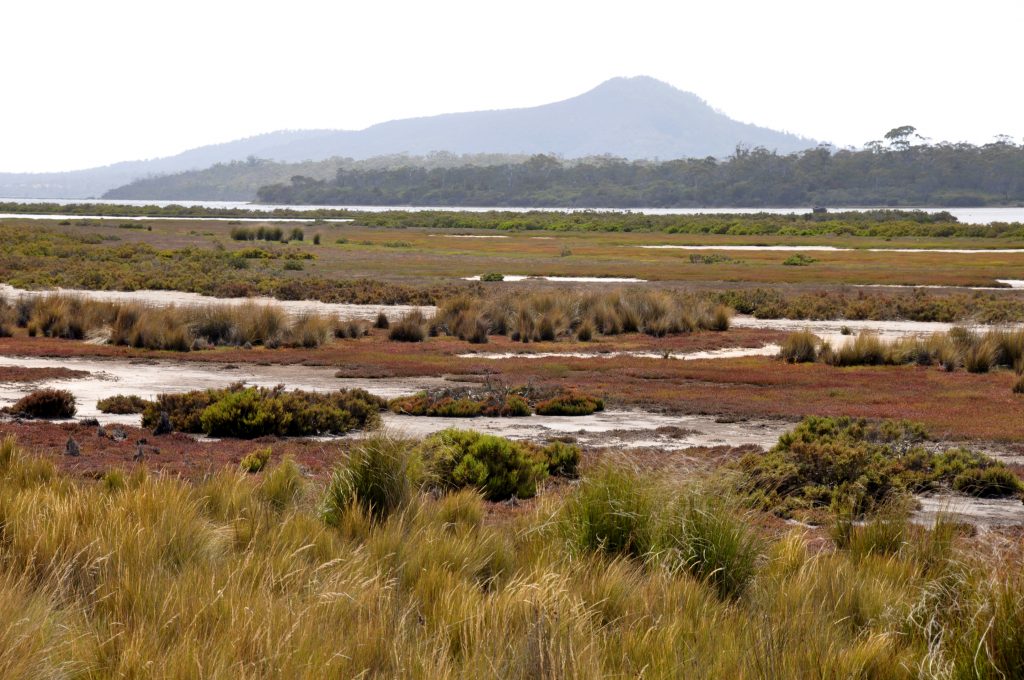NRM South is excited to announce the approval of our most recent project funded under the Regional Landcare Partnerships program: ‘Improving the Ecological Character of the Moulting Lagoon and Apsley Marshes Ramsar Sites’.
Situated at the northern end of Great Oyster Bay on Tasmania’s east coast, Moulting Lagoon and the nearby Apsley Marshes are important wetland areas. They provide critical habitat for waterbirds (including migratory species), are important fish nurseries and act as water filtration systems. The land surrounding these internationally-listed Ramsar sites is important for agriculture and tourism, and the waterways themselves support tourism, recreational fishing and shellfish industries.
NRM South has a long association with these sites. Across different rounds of Australian and State Government funding, and working closely with Glamorgan Spring Bay Council, we have lent our support to research and surveys including weed mapping and priority setting, management plans, community reports, shorebird surveys and identifying the drivers for water quality decline across the sites. Over the years, we have worked collaboratively with partner organisations to advance this important work, and this newly formalised project is no exception.
This project will address threats to the sites and improve wetland health by controlling weeds, improving land management practices and restoring fringing vegetation. This will bring benefits both to the species and industries that are reliant on this ecosystem.
We will be supporting work to restore natural flows in areas at Long Point (Moulting Lagoon) which has been affected by altered drainage, and the eco-hydrological character of the site will be analysed to guide future activities.
We will also be working to recognise the importance of the area to Traditional Owners and will be supporting involvement by the Tasmanian Aboriginal community in land management activities.
Now, more than ever, we need to work to protect and restore our precious wetland areas. Ramsar-listed wetlands are of particular importance on a local, national and international level as they form a global network of wetlands that have been classified as being representative, rare or unique – or that are important for conserving biological diversity. Healthy wetland systems can also help us mitigate against the impacts of a changing climate – through capturing and storing carbon to reduce greenhouse gas emissions, and through moderating the impact of hazards such as flooding, storm surge and sea level rise.
